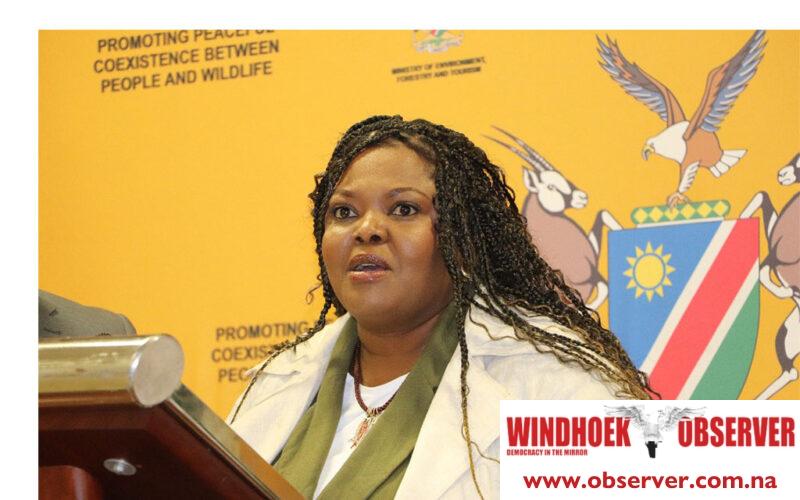Niël Terblanché
During the national commemoration of World Environment Day in Swakopmund, Namibians were called upon to confront the growing challenge of plastic pollution with urgency and collective action.
Caroline Gaorus-Oas, the Deputy Environmental Commissioner, said plastic pollution is everywhere, from the deepest ocean trench to the highest mountain peak.
“We see this pollution. We feel its climate impacts. We live with the sheer waste of taking a versatile, durable material and making it disposable,” she said during her address at Mondesa Community Hall on Thursday
The theme for this year’s commemoration, “End Plastic Pollution,” emphasises a global push to address the environmental and health hazards of plastic waste.
Gaorus-Oas reminded those in attendance that more than 400 million tonnes of plastic are produced globally each year, with half designed for single use and less than ten percent being recycled.
“Plastic clogs our landfills, sewage drainage systems in towns, leaches into the ocean, and is burned and turned into toxic smoke,” she said.
She described the environmental crisis as a triple planetary emergency, encompassing climate change, biodiversity loss, and pollution.
According to Gaorus-Oas, this crisis is driven by the unsustainable way we produce goods and consume resources.
She cited the 2024 Intergovernmental Panel on Climate Change report, which noted major disruptions in natural ecosystems, species migrations, and growing pressures on indigenous communities.
Namibia has already taken steps to address plastic pollution.
The prohibition of plastic bags in protected areas and national parks has reportedly improved wildlife conservation and public awareness.
The government also launched the National Clean-Up Campaign in 2018, which has become an annual collaboration between the environment ministry, regional and local authorities.
With regard to more measures that are being considered, she said: “The ministry is now engaged in extensive consultations with various stakeholders on the possibility of expanding the ban on other problematic single-use plastic products such as straws, cutlery and non-recyclable packaging.”
Gaorus-Oas also spoke about Namibia’s commitment to the circular economy, which has been integrated into the Sixth National Development Plan (NDP6).
She said that Namibia would scale up recycling efforts, expand recycling centres, and invest in training, particularly targeting women and youth, to stimulate employment under public-private partnerships.
Referring to international efforts, she mentioned that adopting a circular economy could reduce virgin plastic production by 55 percent and save governments up to USD 70 billion by 2040.
It could also lower greenhouse gas emissions and generate hundreds of thousands of jobs, mainly in the Global South.
“Environmental protection is done through the implementation of the Environmental Management Act of 2000,” she said, adding that the ministry had deployed environmental officers across all 14 regions to ensure proper enforcement and oversight in line with the decentralisation policy.




